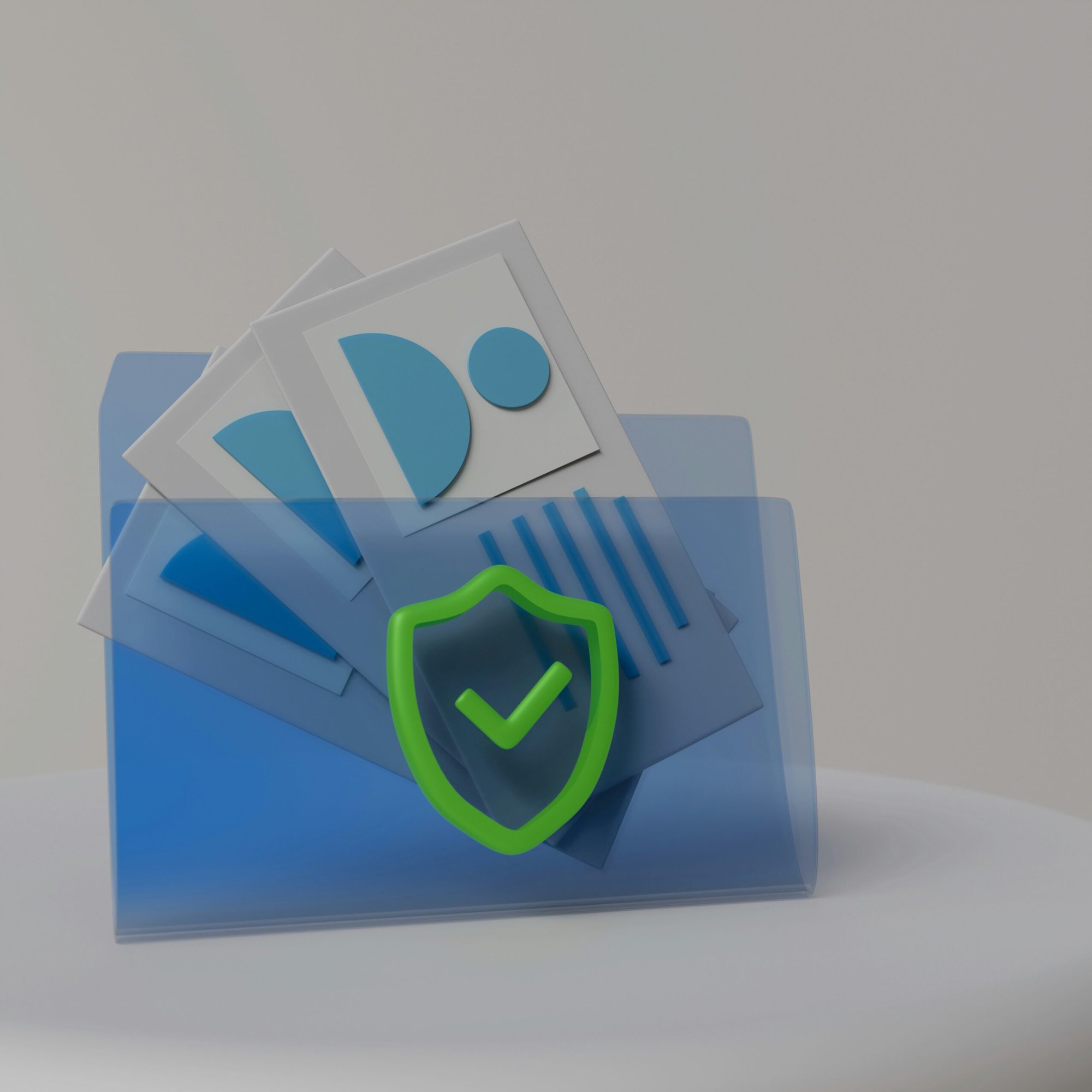Introduction: Secure Information Processing
Secure information processing is essential to safeguard sensitive data. Essentially, secure information processing refers to the methodical management of data to ensure its confidentiality, integrity, and availability. In simpler terms, it’s about ensuring that data is kept safe from unauthorized access, tampering, or loss.
As data breaches and cyber threats become more pervasive, it is critical for businesses to implement secure information processing measures. Without robust security protocols in place, organizations face severe consequences, including the risk of exposing confidential information, such as personal or financial data. Additionally, the financial impact of data breaches can be significant, with potential fines, legal implications, and damage to reputation
Thus, secure information processing is an essential defense against a myriad of digital threats, including data breaches, identity theft, and financial losses. In this blog, we’ll cover the risks of insecure information processing, the foundation of information security, and best practices for secure information processing.

The Risks of Insecure Information Processing
Insecure information processing poses grave risks to businesses, governments, and individuals, leaving them vulnerable to various cyber threats.
Data Breaches
One of the most significant risks is the occurrence of data breaches, where unauthorized individuals gain access to sensitive information. This can lead to the exposure of personal data, financial records, or intellectual property. In turn, this results in severe consequences such as identity theft, fraud, and reputational damage.
Identity Theft
Another peril of insecure information processing is the heightened risk of identity theft. When personal information falls into the wrong hands, malicious actors can use it to impersonate individuals. They may open fraudulent accounts, make unauthorized purchases, or commit other criminal activities in their name.
Financial Losses
Insecure information processing can also result in significant financial losses for organizations and individuals alike. Beyond the direct costs associated with data breaches, such as regulatory fines and legal fees, there are indirect expenses such as loss of business, damage to brand reputation, and the need for costly remediation efforts.
By prioritizing secure information processing, businesses can protect themselves and their customers from the potentially devastating consequences of cyber threats.

The Foundation of Information Security: Examining the CIA Triad
The CIA triad — confidentiality, integrity, and availability — is fundamental to secure information processing.
Confidentiality
Confidentiality ensures that sensitive information is accessible only to authorized individuals or systems. By employing encryption, access controls, and secure communication channels, organizations can prevent unauthorized access and maintain the confidentiality of their data.
Integrity
Integrity refers to the accuracy and reliability of data, ensuring that it remains unchanged and uncorrupted throughout its lifecycle. By implementing data validation techniques, checksums, and digital signatures, organizations can verify the integrity of their data. With such measures in place, organizations can mitigate any unauthorized modifications or alterations.
Availability
Availability ensures that data and resources are accessible when needed, enabling users to access information and services without disruption. By implementing redundant systems, disaster recovery plans, and robust network infrastructure, organizations can ensure the availability of their systems and services. This minimizes downtime and maintains productivity.
By adhering to these principles and leveraging advanced security technologies, businesses can effectively protect their sensitive data and maintain the trust of their customers and stakeholders.

Best Practices for Secure Information Processing
Implementing best practices for secure information processing is crucial for protecting sensitive data and mitigating cyber threats.
Regular Software Updates: Regularly updating software and applications helps patch security vulnerabilities and protect against known exploits.
Data Encryption: Encrypting sensitive data both at rest and in transit ensures that it remains protected from unauthorized access, even if intercepted by malicious actors.
Data Masking: Employ data masking techniques to obscure sensitive information within data sets, reducing the risk of unauthorized access or disclosure. Replace sensitive data with fictitious or scrambled values, allowing legitimate users to work with the data while preventing unauthorized individuals from accessing sensitive information.
Secure Communication Channels: Utilize secure protocols like SLS/TLS and HTTPS for web traffic and encrypted email protocols for email communication.
Secure Network Architecture: Implementing secure network architecture, such as firewalls, intrusion detection systems, and virtual private networks (VPNs), helps protect against external threats and unauthorized access to network resources. VPNs create encrypted tunnels for data transmission over public networks.
Employee Training: Providing comprehensive training and awareness programs for employees educates them about security best practices and helps prevent human errors that could lead to security breaches. These programs should include education on strong passwords, recognizing phishing attempts, and handling sensitive information appropriately.
Access Control Measures: Implementing robust access control measures, such as user authentication, role-based access control (RBAC), and least privilege principles, ensures that only authorized users have access to sensitive data and resources.
Regular Security Audits: Conducting regular security audits and assessments helps identify potential vulnerabilities and weaknesses in security measures, allowing for timely remediation and strengthening of defenses.
With these practices and advanced security technologies, businesses can effectively protect their sensitive data and maintain the trust of their customers and stakeholders.
How Can Individuals Ensure Secure Information Processing
In addition to organizational best practices, individuals play a crucial role in ensuring secure information processing.
Password Hygiene: Individuals should practice good password hygiene by using unique, complex passwords for each account and regularly updating them. Using a password manager can help generate and securely store strong passwords.
Securing Home Networks: Individuals should secure their home networks by enabling encryption, such as WPA2 or WPA3, on their Wi-Fi routers, changing default passwords, and regularly updating router firmware to patch security vulnerabilities.
Avoiding Phishing Scams: Individuals should be cautious of phishing scams, which attempt to trick them into revealing sensitive information or installing malware. They should scrutinize email and text messages, avoid clicking on suspicious links or attachments, and verify the legitimacy of requests for personal or financial information.
By adopting these best practices, individuals can contribute to the overall security posture of their organizations and protect their personal information from cyber threats.

Future Trends in Secure Information Processing
As technology continues to evolve, several future trends are emerging in the realm of secure information processing, shaping the landscape of cybersecurity.
Artificial Intelligence (AI)
AI is poised to revolutionize secure information processing by enabling advanced threat detection and response capabilities. AI-powered algorithms can analyze vast amounts of data to identify patterns and anomalies indicative of potential security breaches, allowing for proactive threat mitigation and faster incident response times.
Blockchain Technology
Blockchain technology offers decentralized and immutable data storage, making it inherently secure against tampering and unauthorized access. By leveraging blockchain for secure information processing, organizations can enhance data integrity, transparency, and trust in their digital transactions and records.
Zero Trust Architecture
Zero Trust Architecture adopts a “never trust, always verify” approach to security, requiring strict authentication and authorization for every user and device attempting to access resources, regardless of their location. This model minimizes the risk of insider threats and lateral movement within networks, enhancing overall security posture.
Quantum Computing Challenges
While quantum computing holds the promise of unprecedented computational power, it also presents significant challenges to traditional encryption methods. As quantum computing matures, secure information processing will need to adapt with post-quantum encryption algorithms to withstand the potential threats posed by quantum-enabled attacks.
At K3 Technology, we stay at the forefront of these future trends in secure information processing, leveraging innovative technologies and best practices to protect our clients’ sensitive data and ensure their continued security in an ever-evolving digital landscape.
Frequently Asked Questions about Secure Information Processing
What is secure information processing?
Secure information processing involves the careful handling of data to ensure its confidentiality, integrity, and availability, protecting it from unauthorized access, tampering, or loss.
What are the common types of cyber threats that can compromise secure information processing?
Common cyber threats include malware, phishing attacks, ransomware, data breaches, insider threats, and distributed denial-of-service (DDoS) attacks, all of which can exploit vulnerabilities in systems and networks to compromise data security.
How does secure information processing help businesses maintain regulatory compliance?
Secure information processing helps businesses comply with regulations such as GDPR, HIPAA, PCI DSS, and SOX by implementing measures to protect sensitive data, maintain data integrity, and ensure proper access controls, thereby avoiding regulatory fines and penalties.
Can K3 Technology assist with secure information processing for remote work environments?
Yes, K3 Technology offers solutions and services tailored to secure information processing in remote work environments, including secure remote access, endpoint security, virtual private networks (VPNs), multi-factor authentication (MFA), and cloud security solutions to ensure data protection and compliance.
Conclusion: Secure Information Processing
Secure information processing is essential in today’s digital landscape to protect sensitive data, mitigate cyber threats, and maintain regulatory compliance. By implementing best practices such as encryption, access controls, and regular security audits, businesses can safeguard their information assets and maintain the trust of their customers.
As technology evolves, staying ahead of emerging threats and adopting innovative solutions will be crucial in ensuring robust security measures. At K3 Technology, we are committed to helping businesses navigate the complexities of secure information processing. We provide advanced security solutions and expertise to address unique needs and challenges.
Together, we can build a secure digital environment that fosters trust, resilience, and success in the face of evolving cyber threats.






